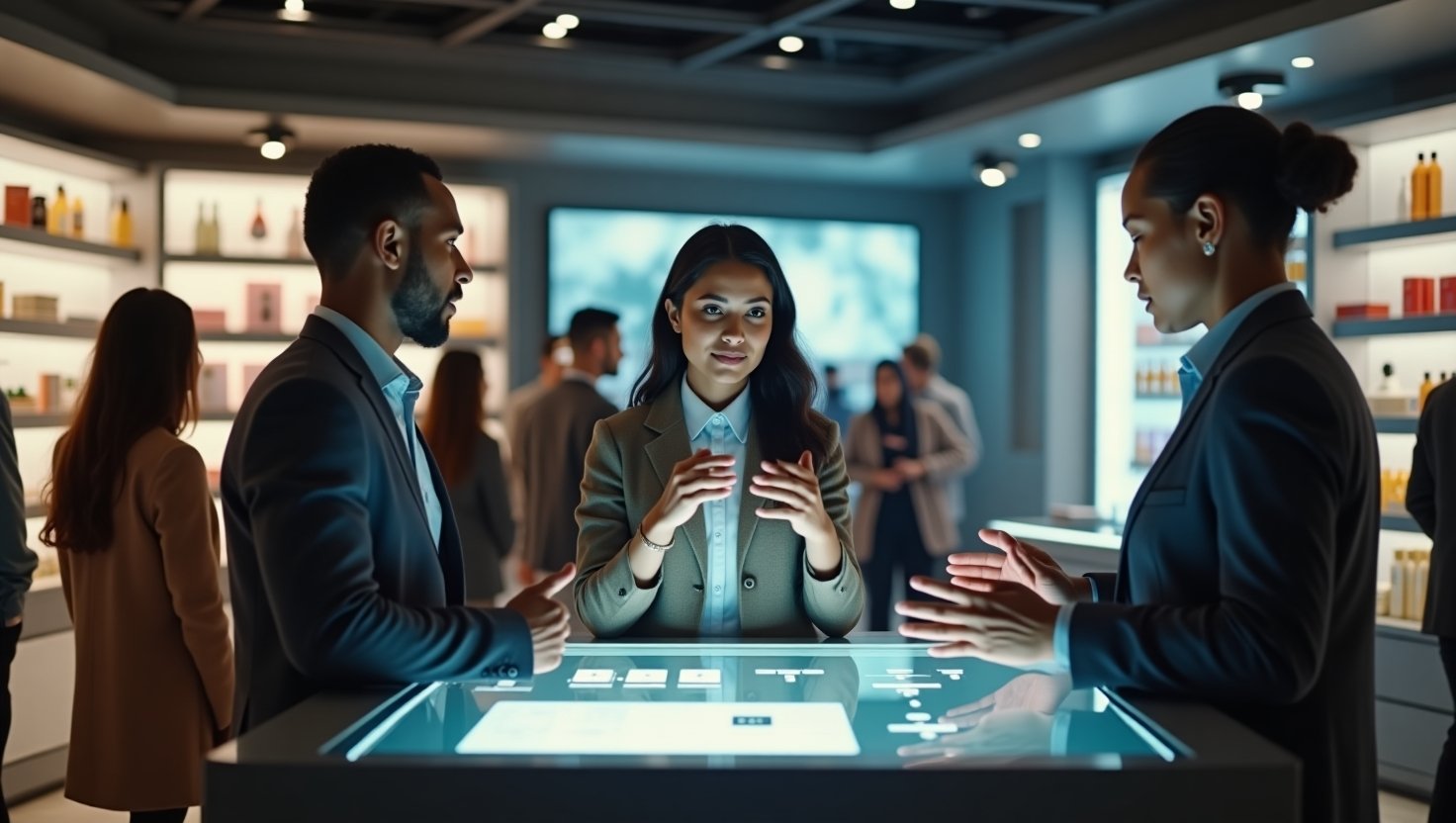How AI Influencers are Shaping the Future of Marketing and Consumer Behavior
In today’s rapidly evolving retail landscape, the converging forces of artificial intelligence (AI) and influencer marketing are reshaping how businesses interact with consumers. These AI influencers aren’t just transforming conventional marketing strategies; they’re fundamentally altering consumer behavior and retail strategy on a global scale. Buckle up as we dive into this revolutionary shift that’s disrupting traditional paradigms.
The Rise of AI Influencers: More than Just a Marketing Gimmick
AI influencers were once viewed as cutting-edge novelties, akin to digital mascots designed to catch the eye of tech-savvy audiences. But have they become even more influential than their human counterparts? Perhaps! According to a podcast series by Simon-Kucher, AI, combined with influencer prowess, is leading a consumer behavior revolution, making these digital entities indispensable in today’s marketing strategy arsenal (source).
Consider this: in the same way that Instagram gave rise to a new breed of influencers, AI platforms are empowering retailers to fine-tune their approach to consumer engagement. The notion of a virtual assistant like Walmart’s Sparky, guiding you to a perfect holiday gift, isn’t a dream of the future—it’s now a reality, helping increase average in-store spending by 25% among app users (source).
The Obsolescence of Traditional Retail Strategy: Adapt or Perish
Traditional retail strategy relies heavily on historical data and human intuition. Yet in an era dominated by digital innovation, that strategy sounds as outdated as dial-up internet. As retailers like Dollar General embrace AI hand-in-hand with human oversight, the optimization of supply chains and merchandising processes becomes a competitive imperative. With AI-driven analyses, businesses can predict market trends, enhance customer experiences, and ultimately steer their strategic decisions toward more profitable avenues.
Dollar General’s strategic hire of former Dropbox executive Travis Nixon to spearhead their AI optimizations exemplifies this shift. This isn’t just about digital transformation but an acknowledgment that AI is integral in crafting a retail experience that resonates with today’s consumers (source).
Consumer Behavior: The New Discovery Shift
Where does this leave the consumers? Empowered, yet paradoxically, more manipulated than ever. As Simon-Kucher points out, the advent of AI influencers creates a nuanced ‘discovery shift,’ orchestrating both how products reach consumers and how consumers perceive them. No longer passive buyers, today’s consumers are at the helm of vast information channels where AI acts as the gatekeeper, and influencers guide the conversation (source).
This technology-led buyer journey is a double-edged sword. While AI offers personalized experiences, it also raises ethical questions about algorithmic biases and privacy infringements. Eerily reminiscent of science fiction scenarios, the future hints at AI influencers possibly dictating not just what we buy, but who we become as consumers.
Future Implications: A Brave New Retail World
As we peer into the future, one thing is glaringly clear—the digital transformation of the retail industry is boundless. Just as search engines once disrupted how we access information, AI influencers are set to redefine the intricacies of consumer-brand engagement. Retailers who fail to pivot towards AI-driven strategies risk obsolescence, while those who integrate these tools may find untapped reservoirs of growth and consumer loyalty.
As we hurtle forward into this AI-driven era, the question remains not whether businesses will leverage AI and influencers, but how effectively they will harness these forces to stay relevant in an ever-competitive market. The verdict? Be prepared to adapt or prepare for irrelevance.
—
With this fusion of AI and influencer marketing, we find ourselves at a fascinating juncture—one where the allure of personalization battles the risks of overreliance on algorithms. In the end, the success of these strategies will depend on a complex interplay of innovation, ethics, and engagement. Welcome to the future of retail—a brave new world, indeed.










